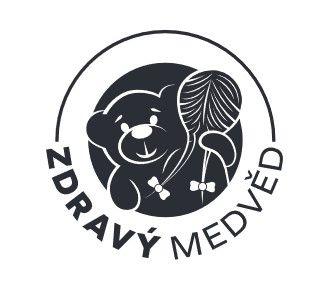Vitamin B1
Synonym: thiamin
Characteristics: Thiamin is one of the B vitamins that are soluble in water. It is naturally present in some foods, added to some food products, and available as a dietary supplement. This vitamin plays a key role in energy metabolism, and therefore in the growth, development, and function of cells.
Absorption: Ingested thiamine from food and dietary supplements is absorbed through the small intestine. Most thiamine in the diet is in phosphorylated forms, and intestinal phosphatases hydrolyze them to free thiamine before the vitamin is absorbed. Humans store thiamin primarily in the liver, but in very small amounts. The vitamin has a short half-life, so its continuous supply from the diet is required.
Dietary supplements: Multivitamin/multimineral supplements with thiamine usually provide about 1.5 mg of thiamine, but sometimes more. The most used forms of thiamine in supplements are thiamine mononitrate and thiamine hydrochloride (89% thiamine and 11% HCl), which are stable and soluble in water. Benfotiamine is a synthetic derivative of thiamine, which is not soluble in water, is more readily available in the body and is converted to thiamine in it.
Natural sources: Brewer's yeast, lean meats and legumes are considered the richest sources of thiamine. Other sources include grains, pasta, wheat germ, soy milk, seeds, and peanuts. Dairy products and most fruits are low in thiamine. Bacteria in the large intestine also synthesize free thiamine. Up to 85% of the thiamine content in meat can be lost by cooking and canning, and up to 60% by cooking vegetables; cooking food in water will make the loss worse. For example, bread has 20-30% less thiamine than its raw materials, and pasteurization reduces the thiamine content of milk by up to 20%. Losses also occur due to grain refining and rice polishing.
Effect: Thiamin is essential for the healthy functioning of the body, it is involved in the metabolism of sugars and proteins, the formation of DNA, several neurotransmitters and the proper function of nerves and muscles.
Deficiency: A manifestation of thiamine deficiency is the disease beriberi. A deficiency can cause a lower intake and absorption or a higher rate of its excretion, for example due to certain conditions such as HIV/AIDS or the use of certain drugs. The most common cause of thiamine deficiency is alcohol addiction. Up to 80% of people with chronic alcoholism develop thiamine deficiency because ethanol reduces its gastrointestinal absorption, liver stores, and thiamine phosphorylation. Up to 20-30% of seniors suffer from some degree of thiamine deficiency. Possible reasons include low dietary intake, a combination of chronic diseases, concurrent use of multiple medications, and low thiamine absorption as a natural result of aging. People suffering from type 1 and type 2 diabetes are also at risk. In the early stages, thiamine deficiency can cause weight loss and anorexia, confusion, short-term memory loss and other mental signs and symptoms, muscle weakness, and cardiovascular symptoms (such as an enlarged heart).
Recommended daily dose: adult: 1.2 mg for men, 1.1 mg for women (1.4 mg during pregnancy, 1.4 mg during breastfeeding).
Adverse effects: not observed.
Interactions: Furosemide as a diuretic reduces the amount of thiamine excreted in the urine. The chemotherapy drug fluorouracil reduces the amount of thiamine by increasing its metabolism. Antibiotics can reduce the endogenous production of B vitamins by intestinal bacteria. Coffee, tea, wine, blueberries, red cabbage, Brussels sprouts, and others reduce the absorption of oral thiamine - 2 hours apart. In general, tannins (e.g. tannins in teas) precipitate thiamin, thereby reducing its absorption. Iron precipitates thiamin, thereby reducing its absorption - 2 hours apart. Horsetail can destroy thiamine in the stomach due to the presence of the thiaminase enzyme. Vitamin C and citric acid can increase the bioavailability of thiamine.
Pregnancy: safe in usual doses.
Breastfeeding: safe in usual doses.
Toxicity: The body excretes excess thiamine in the urine. No side effects were reported even at doses of 50 mg/day or more. The absence of toxicity can be explained by the rapid decrease in thiamine absorption at intakes above 5 mg.
Caution: Thiamine supplements should be used with caution in cancer patients.
Vitamin B1
Chat with us on WhatsApp



